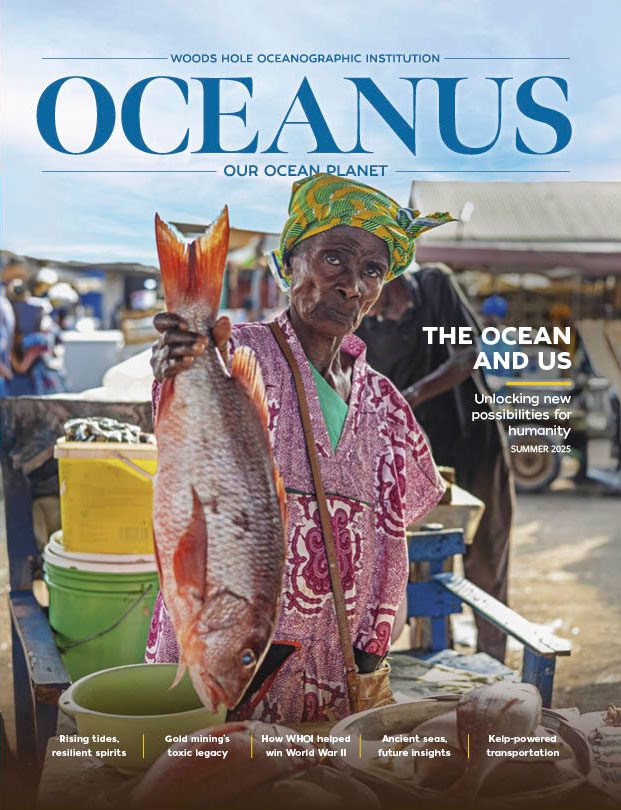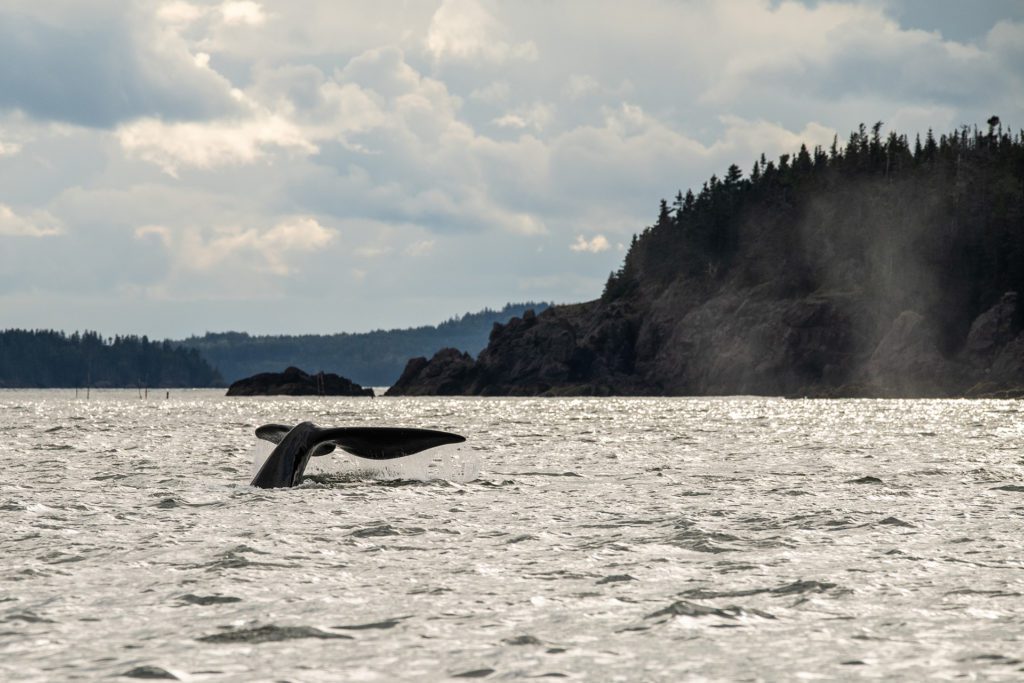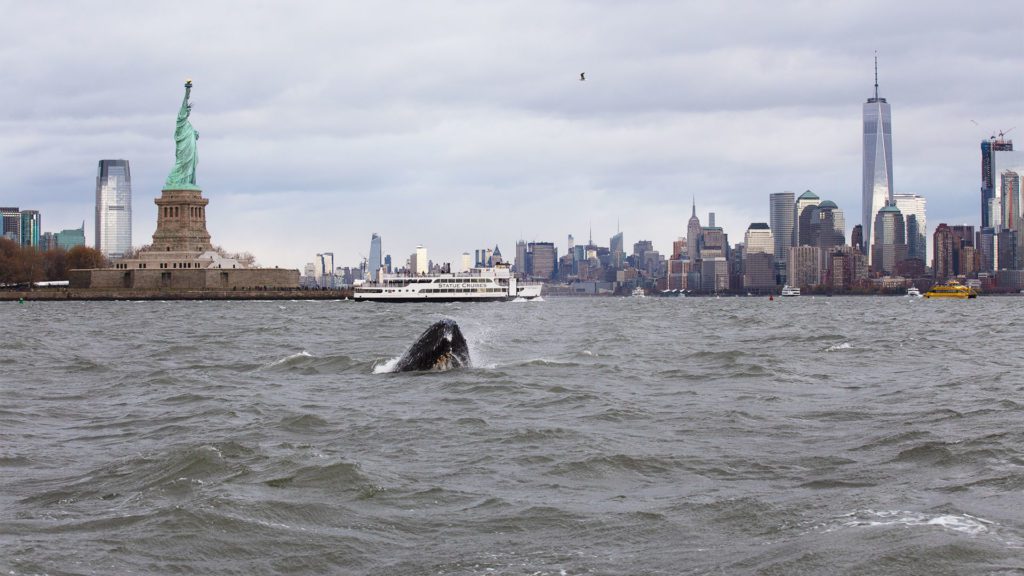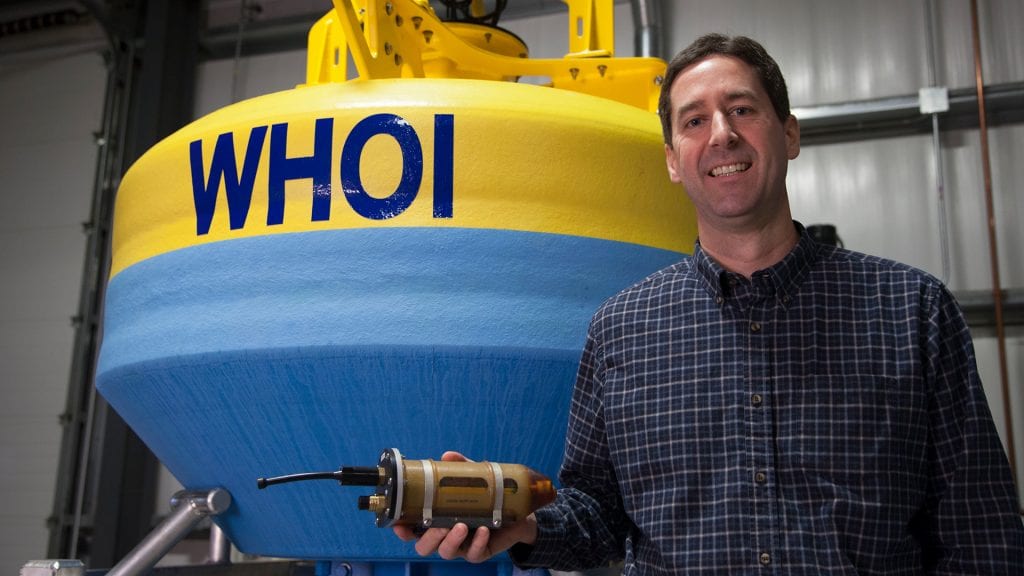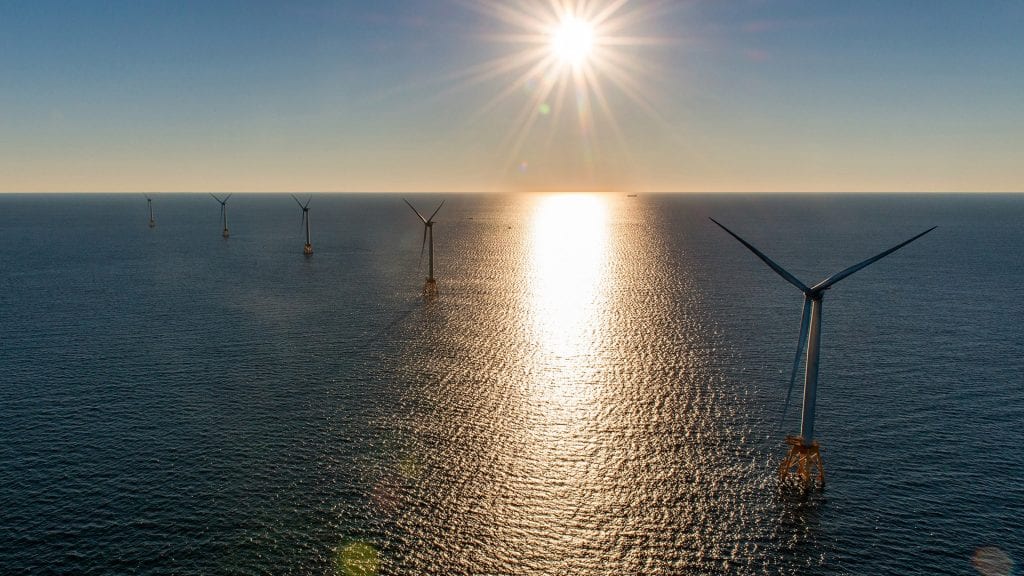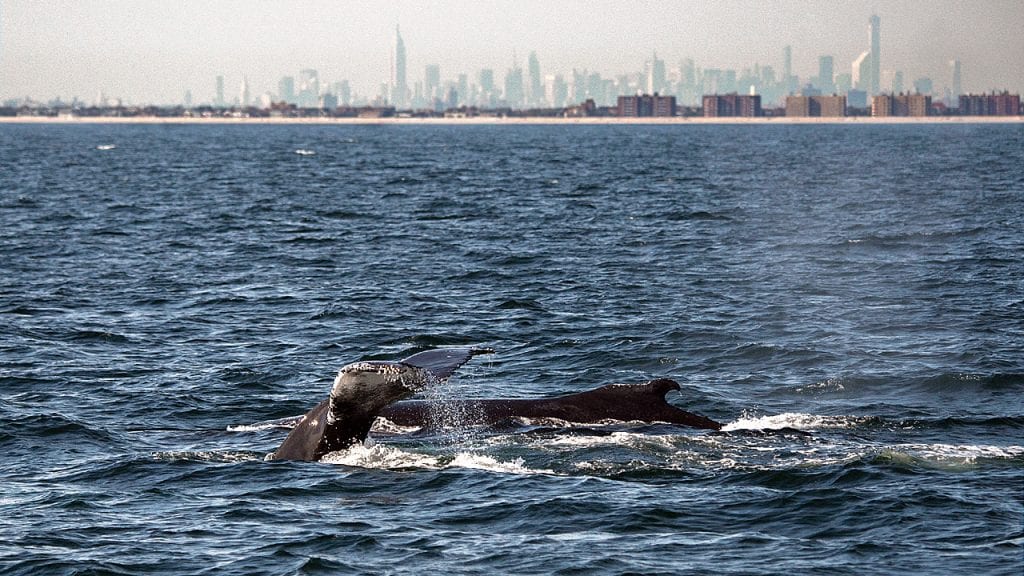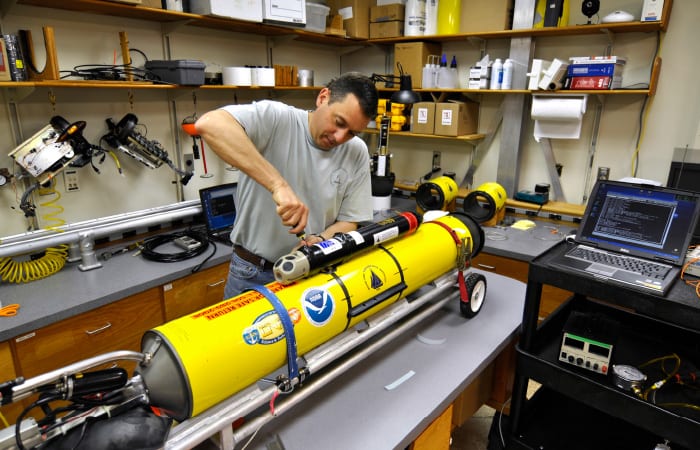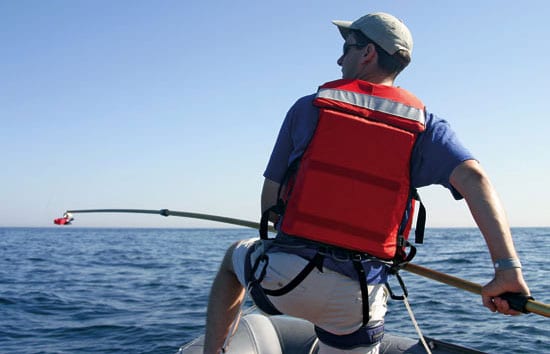Mark Baumgartner
Refine by
Date
Topic:
Article Type
Special Series
Author
For right whales, a dwindling food source is causing concern
As an important food source wanes in the Gulf of Maine, right whales are forced to venture further north into a minefield of ships and fishing gear
Keeping an ear out for whales
Scientists look to safeguard the mammals with robotic buoys in the New York Bight
Whale Safe
For Mark Baumgartner, Whale Safe is the natural evolution of WHOI’s work with passive acoustics
Five books WHOI researchers are reading right now
Ocean scientists don’t just read peer-reviewed papers to stay inspired. Some require less-obvious forms of reading to keep their minds sharp
Harnessing the Power
Can wind developers and ocean scientists work together to get US offshore wind cranking?
Eavesdropping on Whales
WHOI scientist Mark Baumgartner has installed a mooring in New York waters that listens for whales and sends back alerts. The prototype advance-warning system could one day help reduce shipping collisions with whales.
Call of the Whales
Robotic gliders equipped with acoustic monitoring devices can now eavesdrop on whales, enabling researchers to locate the elusive animals before they surface and to warn ship pilots in the area to slow down to reduce the chances of a deadly collision.
To Find Whales, Follow Their Food
The average adult right whale consumes about a ton of food a day, eating billions of tiny crustaceans called copepods that are packed with protein and calorie-rich oils. “To whales, copepods are juicy, greasy Big…
